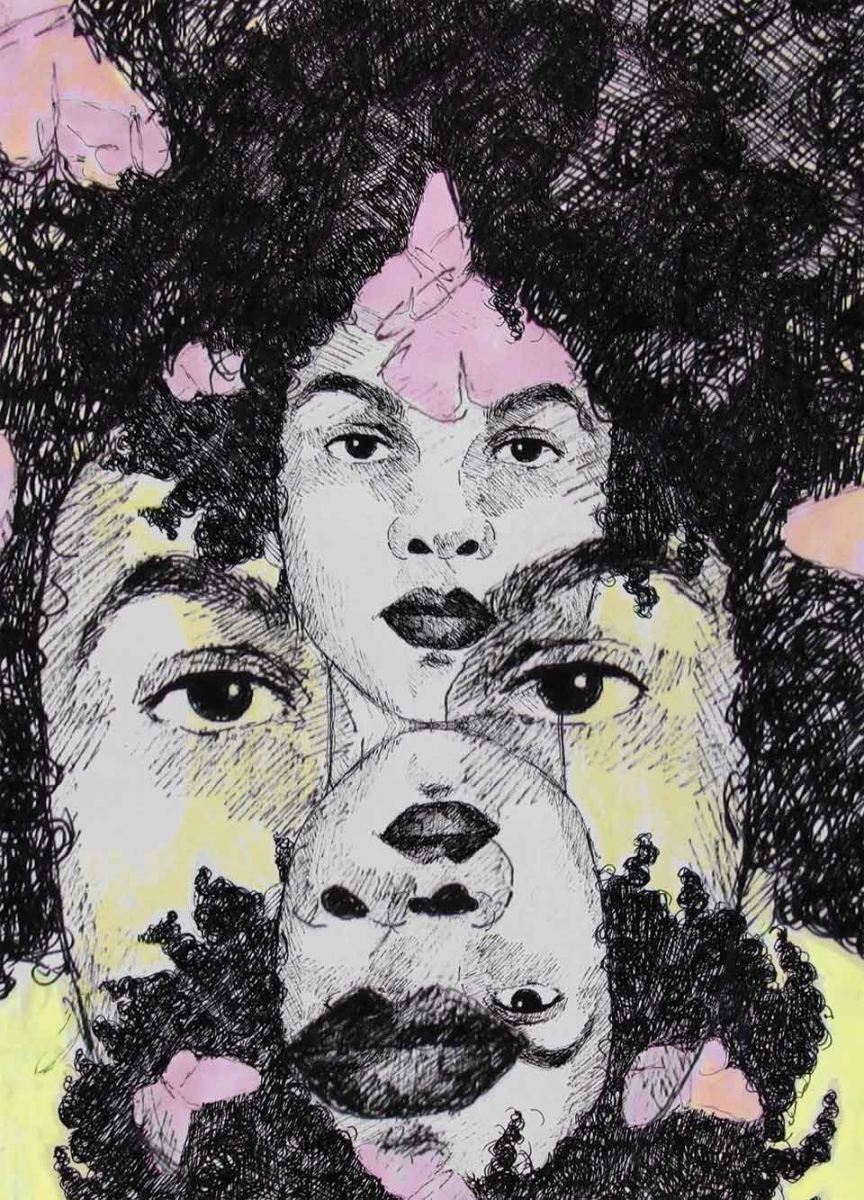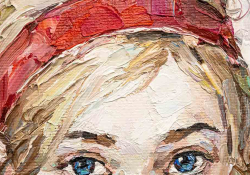The Braid

A girl, “seduced by the city of Haifa,” loses her braid in a barbershop.
My mom and I crossed the road from the bus station to the only barbershop in the area. Both of us were silent to prevent another heated discussion that regularly took place since I had moved to the Convent of Nazareth School in Haifa. I insisted and begged and she refused, I implored and she cursed me, so I cried and she grew quiet.
Being newly divorced, she had her share of sins, so she was not in a position for another confrontation with the tribe. What excuse would she find for her girl, who was seduced by the city of Haifa? She agreed even though she was not convinced: either she liked the flavor of rebellion or hated the taste of surrender.
What excuse would she find for her girl, who was seduced by the city of Haifa?
The road to the barbershop was familiar, but that morning it seemed different. I turned in the revolving chair to see my braid on the floor, like a snake tempting me to touch it or to crush it. My hand groped along the place of amputation, only to jerk back to its place as if stung. I was overtaken by a horror that almost knocked me from the chair. I glimpsed the reflection of my mom’s face in the mirror, as she held her hand to her mouth, suppressing a deep sigh.
“Here’s your braid,” said the barber admiringly. When it fell to the floor, his scissors announced another masculine victory. . . . He was aware of the Bedouin mentality, which equate a braid with virginity. But he was more fortunate than the other barbers around, since the braid that he captured would decorate the framed picture of a short-haired, beautiful woman he hung on the adjacent wall.
I avoided passing his barbershop, to spare my soul the agony . . .
I started sobbing silently as my mom’s menacing looks said to me: “Wait till we get home!” I was not shaken by her threats this time, because my mom was my partner in crime. She had chosen the barber, the day, and the time, and her approval, though coerced, spared me an inevitable punishment. . . . My amputated braid cut off a part of my soul, and I suffered in silence. I did not dare to look in the mirror: my mom’s anger lurked behind me, and my bereft head loomed from the front.
And Haifa, a treacherous friend who had lured me in and then declared her repentance.
I looked for my jealousy to console me for my loss, and I sought my wilderness to assuage my bereavement. . . . Even the pictures of young women with short hair that had always allured me away from my Bedouinness didn’t justify my sin.
And Haifa . . . Haifa, how could you abandon me now?
What condolences does an amputated braid give me?
“Oh, I hope God punishes you, you silly one!” She hoped a thousand times every day. . . . God did not fulfill her hopes, nor did she stop hoping.
And the barber resumed blabbing: “What does a young woman like you need this braid for?”
Every morning, I sat down on the step that separates the living room (which was also a bedroom) from the kitchen (which was also the bathroom), while my mom stood on top of the step; a height difference that guaranteed her full control over my curly hair that reached my lower back. She could barely collect my hair in one fist: as soon as she pulled it together, a tuft of hair escaped her clutch. She forced it in her fist and combed it, and with each tug at my hair, I swayed in pain, and with every “ouch” that I uttered, her fist became stronger and firmer and I became quiet. She did not let go until she had disciplined my hair into a braid befitting a polite young woman.
I failed to convince them that I was a descendant of desert kings and that I had the privilege of bearing my name.
“What? Your daughter wants to imitate city girls?” said one of my uncles, trying to warn my mother of an approaching scandal.
The pupils in the Convent of Nazareth were a mix of city dwellers and nearby village commuters; each with her own dream and her own motivations. Upon arriving at the school gates, the doors of heaven and hell opened. I temporarily erased my memory of my brother, my mom, and myself. I denied my eternal “Bedouinness.” My tongue complied, forgetting its shameful Bedouin dialect. Only my name and my braid exposed what I tried to hide. I failed to convince them that I was a descendant of desert kings and that I had the privilege of bearing my name. The suppressed laughter tormented my soul: “Sheikha? Hahaha! What does this mean, ‘old woman’?”
My braid is the Bedouin heritage that broke my back.
My braid is the Bedouin heritage that broke my back. How I had wished for short hair to tickle my neck; its messy tufts flirting around my weary face.
“Are you happy now? You have become like one of the Haifa girls. Is that what you wanted? May God punish you . . . !”
I have become like the Haifa girls, or very close to it.
I believed that I was, or I almost did, except for the hand that reached for my braid, only to be stung by its absence.
Translation from the Arabic











